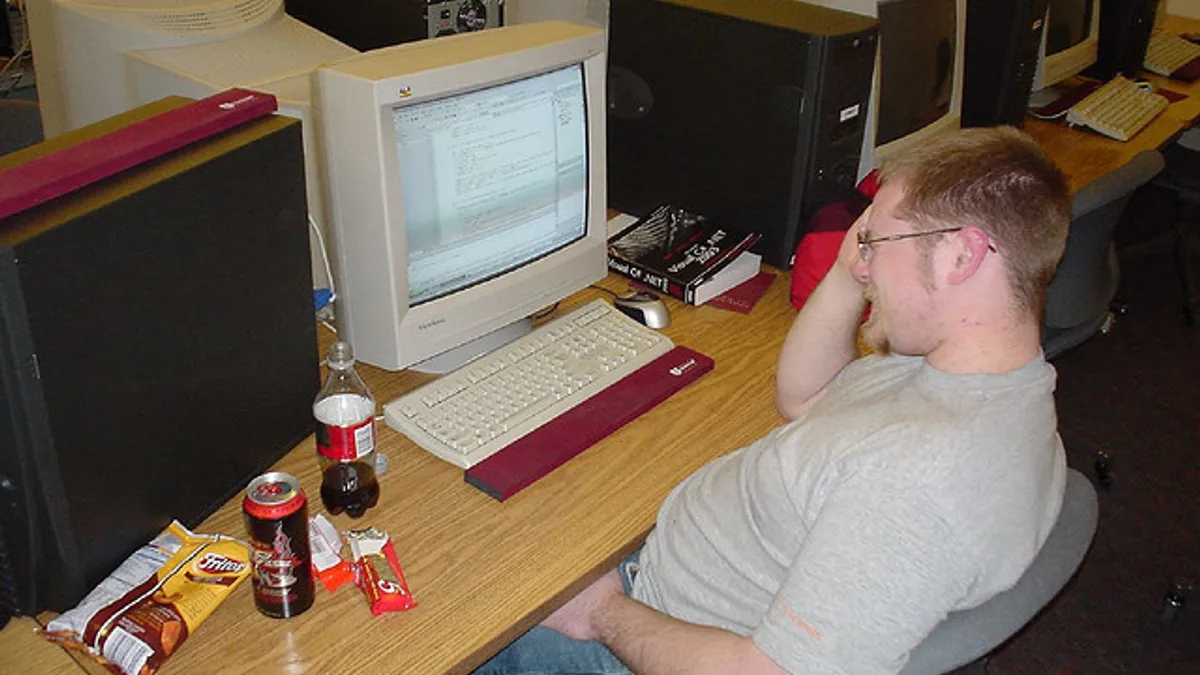No high school teacher should be surprised to hear that secondary education students often times have trouble identifying high-quality sources for research papers. Findings from a report released this week by the anti-plagiarism tech and grading company Turnitin corroborate such skepticism, showing that poor-quality sites make up as much as 50% of the Internet sources used by secondary ed students in their writing work.
Turnitin's "Sources in Student Writing" analysis came from the results of 44 million content matches made based on more than 9 million papers submitted to Turnitin between July 2011 and June 2012. Earlier this week, we looked at their findings for college students, whose sources turned out to be what Turnitin considers "high quality" 57% of the time. Secondary ed students' sources turned out to be high quality a mere 50% of the time, however. Here are the top 10 Internet sources they looked at:
1. WIKIPEDIA
The Internet's most popular community-generated encyclopedia Wikipedia retained its status at the No. 1 quoted source in students' papers, maintaining the 8% of sources uses that it had during Turnitin's 2010-2011 report. Wikipedia may not be a great place to find original sources on the Web. It is, however, still better than many of the sources that showed up on this year's rankings.
2. ANSWERS.YAHOO.COM
The Yahoo "Answers" site is a social site for question-posting and community feedback. The answers students get are only as trustworthy as the answer-posters responding, but, much like Wikipedia, it can be a fine pivot point for seeking out better resources online.
3. ENOTES.COM
Enotes.com is actually a fine study resource in the most general terms. Most teachers wouldn't want their students using the site as a replacement for reading their Shakespeare places and science textbooks. It can, however, be a useful arena for tossing out questions and reading other users' opinions.
4. ANSWERS.COM
Answers.com falls into a similar category as the two entries above. The posts it contains will look sickly when compared to well-researched and dutifully annotated sources found elsewhere, students may find some help here to guide their research.
5. OPPAPERS.COM
Oppapers.com is now operated by the people at StudyMode.com. It falls into Turnitin's "paper mill" category, which is exactly what it sounds like. Here, students will find other people's papers, for better or worse, and it's probably one of the first places a teacher should look if they suspect plagiarism.
6. SCRIBD.COM
Scribd is a platform for sharing slides and documents. You're bound to find many better sources scattered throughout its archives than you would on a paper mill site. You'll still, however, find enough dubious material to realize that you're not perusing the Library of Congress.
7. SLIDESHARE.NET
SlideShare can be a fine place to get started, finding well-organized presentations on a variety of topics. Just be mindful of the authors and follow up to find the original sources behind the claims being made.
8. ESSAYMANIA.COM
EssayMania.com, for better or worse, is also a paper mill. It's an archive of pre-written, easy-to-find papers on common essay topics and great works of literature. If you have students, tell them it's about as reliable as choosing a random classmate to do their homework for them.
9. SCHMOOP.COM
Schmoop.com contains plenty of fine overviews and homework help guides for students having trouble with their class materials. For flashcards and example essay topics, it's a fine place to start. But you'll still find yourself shaking your head if you have a student who tries plagiarizing based on something they read here.
10. MEDLIBRARY.ORG
For medical research based on real labels pulled from the Food and Drug Administration's own database, MedLibrary.org can be a great resource. Just watch out for students dipping into its MedWiki section and stripping out biology and biochemistry paragraphs word-for-word.
Would you like to see more education news like this in your inbox on a daily basis? Subscribe to our Education Dive email newsletter! You may also want to read Education Dive's interview with Turnitin's Chris Harrick about the company's plans for 2013.












